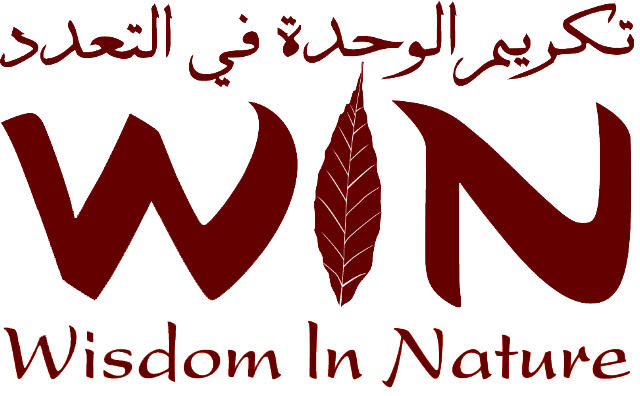GM Foods and Islam
"Eat and drink of that which God has provided and do not act corruptly, making mishchief on the earth."Qur' an (2:60)
WiN's Position on GM Food
Away from GM Crops -
Towards holistic approaches aligned with core Islamic Principles
"At WiN, through our research, discussions and reflections, we believe that the release of GM organisms into the wider ecology should, from an Islamic perspective, be opposed.
Furthermore, we believe that there are approaches - such as permaculture, organic farming and agroforestry - that have fewer risks, are based on a greater recognition of the interconnectedness of life, and which instead of undermining relationships, draw on principles that nurture them. They thus are more in alignment with core principles from the spiritual traditions including Islam.
We ask Muslim communities around the world to wake up to the fact that industrial farming practices, of which GM is a part, do not fit with core Islamic values. In the same light, we cannot turn a blind eye to the fact that GM crops are fed to animals destined for halal slaughter.
If the 'halal' stamp is incapable of defining what is Islamic, we must move beyond the false comfort zone the term 'halal' has provided, for it is now beyond any doubt that a more authentic 'Islam' needs to emerge, one that is alive to the challenges of our time, yet remains in union with the spirit of this beautiful tradition.
Also, we believe that as we move away from large scale industrial farming towards smaller scale decentralised food production, this would not only be more compatible with a sustainable, life supporting future, but would also lead to greater empowerment. Such a move will also draw people, land, livelihood and traditional local knowledge together, enriching biodiversity and nurturing community.
Witnessing the small, but growing numbers of Muslims working at the grassroots with fellow citizens of the world to create a new, more wholesome paradigm gives us much hope.
We have produced the GM section on our website in a style that we hope is readable, while outlining key background information to help readers appreciate the reasoning and principles leading us to take the clear position we have.
We received no funding for this project, and the production of this part of the website was completed entirely through voluntary efforts.
Wisdom In Nature is open to collaboration and partnerships with like-minded people, networks and organisations.
Please get in touch!"
--------------
Introduction
The tension surrounding Genetically Modified (GM) Food is something we must face. The natural order is being undermined for the sake of big business. GM crops are already being grown over millions of acres worldwide and can cross-pollinate with normal varieties. The environment is being mistaken for an experimental playground, a mistake that is destabilising the fragile web of life.
We are sometimes told that GM is a precise extension of natural breeding and that modified foods can help solve the world hunger problem. We may be told that these 'foods' can help solve nutritional deficiencies, and anyone who gets in the way and points to more holistic solutions is accused of being 'anti-science' and of condemning millions to starvation.
If we look at the facts, however, we find something quite interesting. The scientific facts tell us that genetic modification can disrupt the normal expression of genes, resulting in unexpected and potentially toxic effects. The facts tell us that this technology is not being used to solve world hunger; but to increase dependency on multinationals. The facts suggest that the claims pushed forward to justify GM foods are designed to act as a global smoke-screen whilst the technology is used to satisfy a desire for wealth and power.
Not only is a significant proportion of the worlds food supply at risk of being genetically modified, but tests show that pollen from already existing GM crops is cross-fertilising conventional ones. Thus, the release of GM foods into the open increases the likelihood that we may be left with no choice but to eat these foods.
Religion & GM Food
Scientific issues such as those related to gene technology applications are totally relevant to people of all faiths and religions, including Muslims. Surely after all, the ultimate challenge of any religious or spiritual person is to apply the teachings to the world in which they live. Gene technologies have the potential to alter creation and undermine the principle of wholeness and oneness, with potentially dangerous consequences. They affect our lives and those of future generations, and are being used right now. They cannot be ignored.
In order to meet the challenge and apply spiritual teachings to modern day issues like GM foods, we need to understand not only the teachings, and develop not only our inner state, but also our understanding of the world in which we live. Through this process of reflection and deeper understanding we become empowered. With empowerment we are better able to make a difference.
GM Animal Feed
In the UK, as consumer pressure is encouraging food manufacturers to remove GM ingredients from their products, animal feed has become a popular and profitable dumping ground for GM foods. This is unacceptable. It means that GM foods will continue to be grown, thereby leaving many ecological concerns unaddressed. Also, meat, dairy products and eggs from the animals could become affected.
Amazingly, no hint is given in the labelling and halal meat is not an exception.
